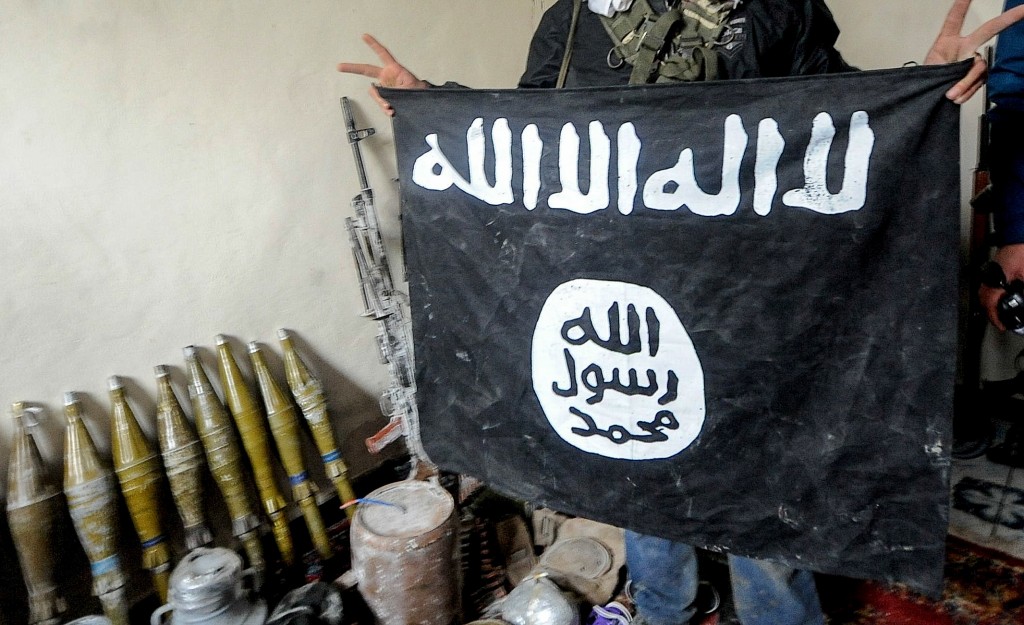How ISIS Is Waging a ‘War of Ideas’ Through Social Media
Natalie Johnson /
One year ago this week, the Islamic State in Iraq and Syria seized Iraq’s second largest city, Mosul—its first major land grab in a battle for territorial expansion that continues today.
But the reach of the terrorist organization, best known as ISIS, extends beyond a geographic battlefield, bridging traditional war tactics to disseminate brutality online.
The group has proved adept in its use of social media platforms, running a sophisticated propaganda campaign to broadcast its gruesome “successes” and recruit beyond the Middle East.
From high-quality videos edited in chopped sequences—mirroring Hollywood previews—and posted to YouTube, to its use of trending hashtags coupled with gruesome slaughters shared via Twitter, ISIS has gripped onto Western media tools in waging a new type of battle.
“Unlike al-Qaida, which saw itself as a revolutionary vanguard and focused its propaganda efforts on like-minded Islamist militants, ISIS is a mass movement led by a new generation of Islamist revolutionaries who have developed a much broader propaganda effort,” said James Phillips, The Heritage Foundation’s senior research fellow for Middle Eastern affairs.
This effort, Phillips added, is broadcast through a range of digital platforms, appealing to young Muslims who then embrace ISIS’ radical Islamist ideology and flock to the group’s so-called “caliphate.”
Michael O’Hanlon, a Brookings Institution senior fellow specializing in defense and foreign policy, pointed directly to ISIS’ propaganda machine as key to its recruitment success.
“There is no doubt in my mind that social media has helped ISIL enormously,” he said, explaining that the group still draws about 1,000 foreign recruits a month to Iraq and Syria from nearly 100 different countries.
“Its glossy, glitzy, romanticized version of jihad and the caliphate it is trying to create—even if seriously perverted and twisted and brutal by any fair standard—is made to seem appealing by truly expert propaganda,” O’Hanlon said.
But some feel the group’s social media success has been overstated.

A Kurdish fighter holds an Islamic State in Iraq and Syria flag after capturing the group’s Cultural Centre in Kobane, Syria on December 22, 2014. (Photo: Gail Orenstein/NurPhoto)
Max Abrahms, a political science professor at Northeastern University specializing in insurgency and terrorism, said “social media alarmists,” those who focus too narrowly on ISIS benefitting from social media, fail to consider the drawbacks.
“What the social media alarmists ignore is that social media can increase not just the recruitment rate, but also the attrition rate,” Abrahms said. “Not only are many Islamic State terrorists caught or killed via social media, but the propaganda can motivate governments into adopting a more robust counterterrorism response.”
This social media backlash was most recently evidenced last week after a single selfie posted by a member of ISIS helped the United States Air Force identify and destruct a ISIS headquarters building in Syria within 24 hours.
Gen. Hawk Carlisle, commander of Air Combat Command, said last week that airmen at Hurlburt Field, Florida, found the photo of “some moron standing at this command” and “bragging about the command and control abilities” of the terrorist group.
Some 22 hours later, three Joint Direct Attack Munitions—guided “smart” bombs—destroyed the headquarters.
The incident swept headlines as an undermining of the group’s typically savvy ability to use social media as a foundational piece in its recruitment and terrorism efforts.
While this case is certainly no black swan among ISIS’ social media downfalls, the group’s propaganda machine has proven a challenge as the U.S. struggles to redefine its counterterrorism strategy beyond the military.
O’Hanlon said the problem lays in the U.S.’ inability to gain credibility within the groups ISIS is successfully targeting.
“We should do what we can to counter the message by pointing out ISIL’s flaw, if our critiques will be believed,” he said. “But since they often won’t be believed, we need allies throughout the broader Muslim world to send the same message. And of course, we can’t force them to do so at a pace or in a way they don’t like.”
Phillips said the U.S.’ counter-propaganda efforts would likely have limited appeal to those “most at risk” in ISIS’ recruitment campaign, but that the U.S. government should publicize the group’s atrocities, particularly those against other Muslims.
He added the U.S. could covertly subsidize defectors who publicly criticize ISIS to counter its “radicalization” efforts.
“Military, intelligence and law enforcement efforts will always be key elements of counterterrorism campaigns,” he said. “But in the long run, the war of ideas is crucial to destroying the appeal of Islamist totalitarian ideology and reducing the flow of new recruits into terrorist organizations.”
